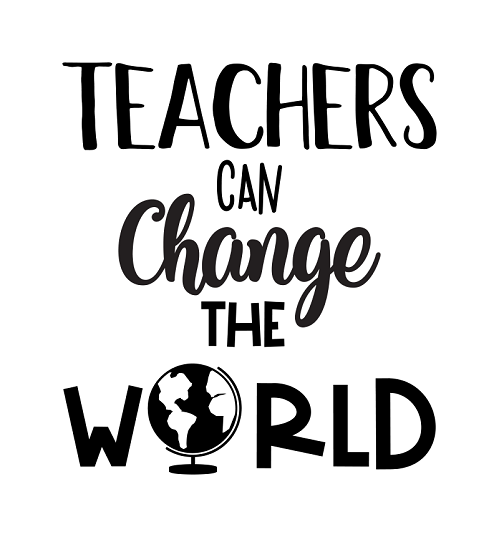Change is always good in the long run
In our efforts to improve the world, or even just improve ourselves, sometimes we need a catalyst.
What is a catalyst? A scientist would tell you it is a substance that starts or hastens a chemical reaction. But the word also has meaning outside the world of chemistry: a catalyst can be an event—or, just as often, a person—that causes change or action, that makes things happen.
If we think about it, we can all identify experiences that altered our lives—sometimes for the better, sometimes not. What have been the catalysts in your life? Maybe it was a diagnosis, a move, or a promotion. Perhaps it was something more subtle, like a chance meeting with an old friend, a phone call from a family member, or an encouraging word from a stranger. Frequently, the force behind life’s most meaningful catalysts is a person.
Some people just seem to have a way of changing the status quo. They walk into a room and make everyone around them feel and act better. They bring light and love, goodness and wisdom, patience and perspective. Of course, the opposite is also true. There are others who prevent good things from happening. Either by their attitudes or their actions, they seem to hinder growth and cooperation, friendship and understanding.

Whether we realize it or not, each of us has the power to be a catalyst in someone’s life, including our own. If we choose to, we can all inspire growth and happiness in ourselves and others.
A positive catalyst doesn’t have to be charismatic or commanding. Often the most effective catalysts are quiet, steady, and observant—always ready to help. They try their best to leave each person and each place better than they found it. Of course, they aren’t always happy, and they certainly aren’t perfect, but they try to be a catalyst for positive change.
Good things don’t just happen. They’re usually sparked by someone who makes good things happen. That’s what the world needs more than ever: people who do their part to create positive change.
Have you ever bumped into someone you knew years ago, surprised to find how much he or she had changed for the better? Life is full of little miracles, but this is perhaps the greatest miracle of all—to see people change, grow, and improve, day by day and little by little.
Imagine how different life would be if we saw people not for who they are right now, but for who they could become. Think of how we might respond differently to a child if we looked past his failed and messy attempts to make something and into his productive, positive future. Consider the boss, spouse, teenager, or neighbor whose occasional annoying behaviors sometimes put us at odds. What if we could see them as the better person they might become? This may be the most important way we can change—in our ability to believe in and nurture change in others.
Clinton Duffy was a prison warden in the United States during the 1940s and 50s. He was well known for his efforts to rehabilitate the men in his prison. One critic who was skeptical of these efforts said to the warden, “You should know that leopards don’t change their spots!” But Duffy replied, with the wisdom and perspective that comes of experience: “You should know I don’t work with leopards. I work with men, and men change every day.”
It’s not always easy to see others as they can become, and it very often takes patience and faith. Too often we give ourselves and others a reputation, a perception, that makes change difficult. But people can surprise us, even inspire us, with how they can and often will change for the better.
In a tragic accident, a young man was suddenly paralyzed from the neck down. Later, from his wheelchair, he observed with optimism, “My life changed in an instant. All of a sudden it seemed like everything was different. Since then, I’ve learned that change happens to everyone. It’s how we handle it that counts.”
Not all change comes as quickly or dramatically as it did for this young man, but change does come to us all. Be it sudden or gradual, change is inevitable.
For some it may be a layoff that makes a job change necessary. Children grow up and go off on their own, and a home that was once a busy hub of family activity becomes a quiet and sometimes lonely place. Loved ones pass away, and those left behind must learn to do without their cherished companionship. Coping with change can be a real challenge. But the young man was right—“it’s how we handle it that counts.”
If we dwell too long on the past when change occurs, we place the future in jeopardy. We should treasure our memories and speak fondly of past good times, but as one wise man put it, we shouldn’t let “yesterday hold tomorrow hostage.”
Change can provide opportunities for learning and personal growth. It forces us to look at things in a new and perhaps better way. In coping with change, we can find strengths and abilities we never knew we had. And the support we feel from things that have not changed—like family or friends or faith—becomes even more valuable to us.
Although change is often difficult, with hope and determination we can turn it into something positive and meaningful. As we do, we will see that just as the night gives way to the brightness of each new sunrise, the challenges of today can bring a happier tomorrow.
Though none of us knows for sure what tomorrow will bring, we can determine to live with hope and optimism. We can resolve to subdue voices of fear and doubt in order to embrace life’s simple and joyous moments. We can express love and appreciation now and not wait for a future that may not turn out as we had planned. With every choice to cherish the present and face the future with positive expectation, we plant another cherry tree that promises a bountiful harvest for years to come.
By Samuel Enos Eghan















